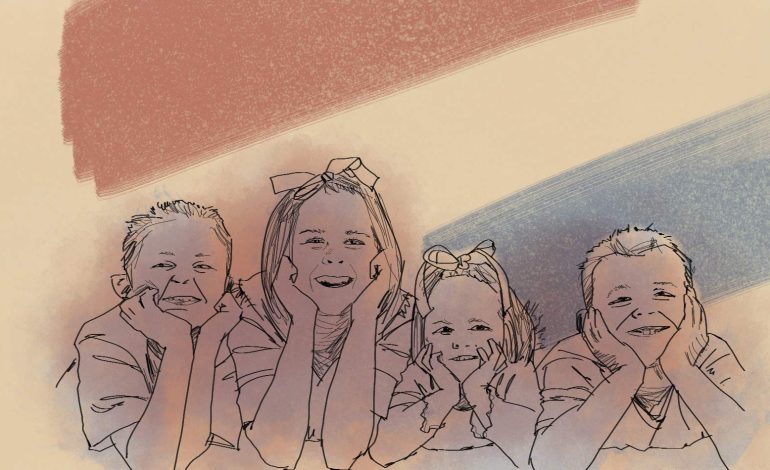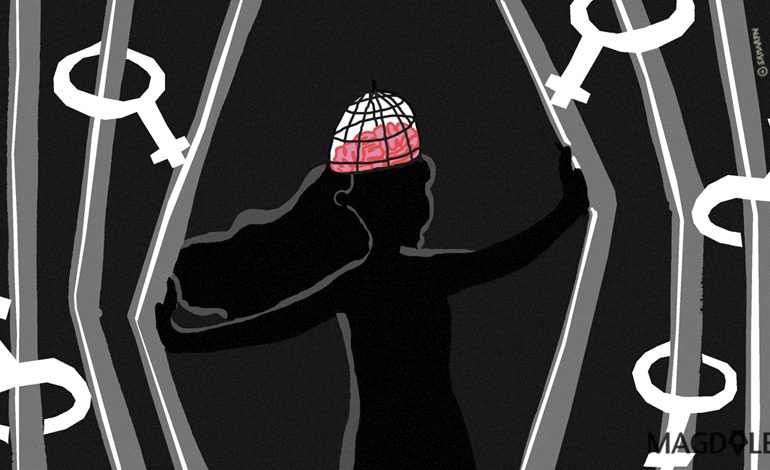Why All Teachers Should Embrace Feminism

For some readers, the fact that I am a primary school teacher who stands by feminism might be frightening. Those who are unfamiliar with the ideology of feminism might react negatively to the title of my piece. Some months back a group called Indonesia Without Feminists emerged, attacking feminism as an evil western imposition that runs in contrast to the Islamic belief.
On the contrary, I believe feminism brings light to humanity, as its main purpose is to end any kind of oppression, be they between men and women, parents and children, teachers and students, bosses and workers, even human and nature. Teachers have an important role to educate students about justice to end discrimination and oppression, but only a few teachers do this. And even fewer practice what they preach. Speaking of my experience, feminism has influenced me to create a better education environment for my students.
Here are the reasons why I believe Indonesian teachers need feminism.
-
No longer Mrs. Right or Mr. Right
Mrs. Right or Mr. Right are teachers who always know everything and have problems when their students ask too many questions. Instead of opening space for discussions they merely focus on protecting their pride, even worse, killing students’ curiosity. Don’t get me wrong. I was once that Ms. Right. But the moment I realized that my superiority mind set did not help my students grow, I quit being Ms. Right to become a more democratic teacher. Now when I cannot answer their questions, I am not ashamed to admit my imperfection and give space for my students to explore their curiosity. Moreover, I challenge my students to criticize me when I do something wrong. Becoming a better teacher is a continuous process. Of course, it takes more effort to try, reflect, evaluate, and learn over and over again, rather than just stayi in the comfort zone. But it is the path that works if teachers want to build a more just classroom.
Also read: Proper Sex Education as a Child’s Rights
-
Personal boundaries matter
One of the reasons behind the emergence of movements like Indonesia without feminists is the prevalent of the free-sex narrative. Let me get one thing clear, feminism respect personal boundaries – whether they are physical, mental, emotional, social, even financial walls – to protect oneself from being abused, manipulated, or used by other people. The reason why feminists support sex education from early age is to give understanding that personal boundaries matter. The better someone understands oneself, the better they can learn to respect themselves as well as others. I teach my 6-7 year old students about personal boundaries by explaining parts of their body, including those that can or cannot be touched by others. I also teach them how to detect if certain physical touch is not good, whenever they experience feelings like fear, disgust, or anxiety. The good thing is at such an early age, they learn to protect themselves when someone touches their private parts without permission by saying “stop doing that,” “I don’t like if you do that,” “that’s not respectful,” and even scream if they think they need help. The key is to help them become more aware of what “my body is my authority” is, so when they notice something wrong, they know how to seek help.
-
Crying is not a weakness
Expressing emotion is important to keep our mental health. In my classroom, I allow my students to feel and express their feelings. When students get upset at someone or something, I make sure they do not harm others without neglecting their needs to express their anger. This goes the same way for students who cry. When a student cries, I do not insist him/her to stop immediately. I let them explore their feeling, as it is a good opportunity to teach them about self-control. Questions like: Do you mind telling me why are you crying? Are you ready to join the class? Do you still need time to calm yourself down? Do you need to wash your face to refresh your eyes? Do you need time to cry alone? Can help them learn to manage their emotions. In addition, I tell my students that both boys and girls can cry, because as humans we have the same kind of emotions. Last but not least, I make sure that they respect when someone shows sadness or happiness by crying, because tears do not make someone weak, so there is nothing to be ashamed of or laughed at.
Also read: Alarming Intolerance at Public Schools and Universities
-
Extroverts are not superior, introverts are not inferior
In my first year of teaching I used to judge my introverted students as slow learners or ones with disorders. For example, when they could not perform in front of the classroom. Instead of appreciating their effort, I insisted that they spoke more loudly just because other students in the classroom complained about their low voice. Having reflected on my mistakes, I have since learned to embrace my extroverted and introverted students by being fairer to them now. I have slowly come to understand that they need different ways to show their understanding in learning. It is important for teachers to provide various assessments that also benefit introverts. Moreover, teachers need to teach students about respect if there is an introverted friend who needs personal space, or more time to speak loudly, or to be invited to play the in playground. Both extroverted and introverted students deserve a classroom where they can feel safe and accepted to be who they are.
-
Be kind to Mother Earth
How much do we human take nature for granted? How many times do we treat Mother Earth recklessly for the sake of our needs? Some people do not believe that climate crisis is real. Some people do not believe that many animals suffer from it. Some people still do not care if they need to take action to save the earth. Some people keep exploiting the earth without realizing the impacts they leave as ecological footprints – plastic wastes, just to name a few. Through the feminist perspective, I learn to see myself as someone who is in the process of fighting against any kind of oppression, including of the Earth. Teachers have the privilege to educate students to become more environmentally aware. We give example to students by doing small things such as consistently reducing using single-use plastic, recycling disposable utensils and saving energy, and we can invite them to spread more kindness to Mother Earth.
Again, being a teacher is a lifetime process to educate students about tolerance, justice, open-mindedness, and also persistence. Especially when it comes to diversity, we can choose whether we will look at it as a threat or an opportunity to learn.






















